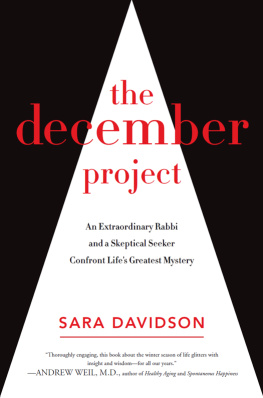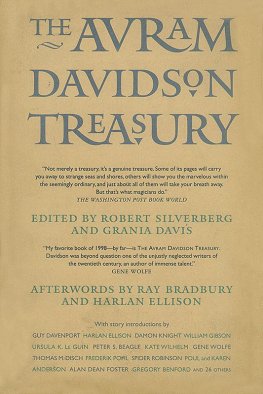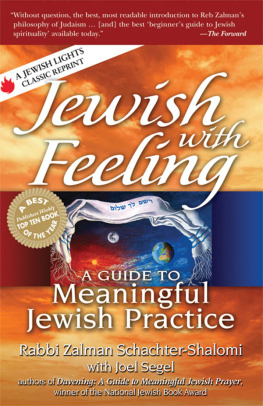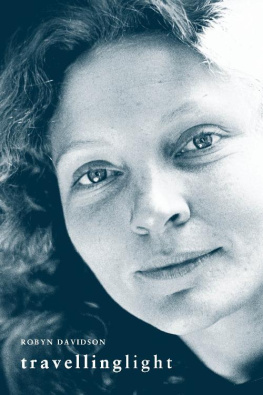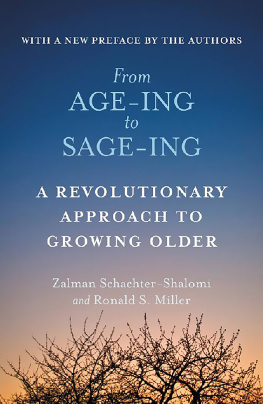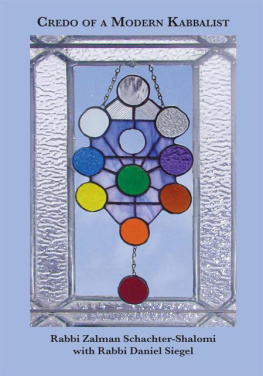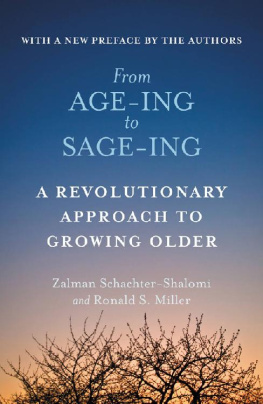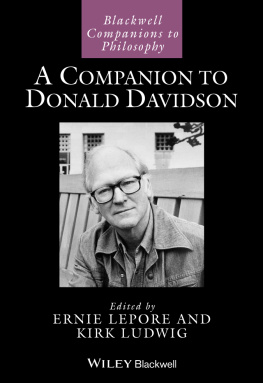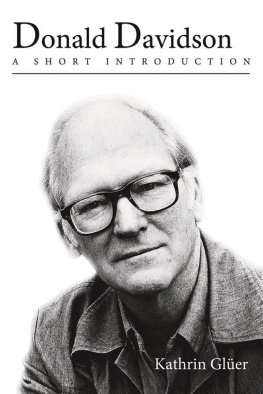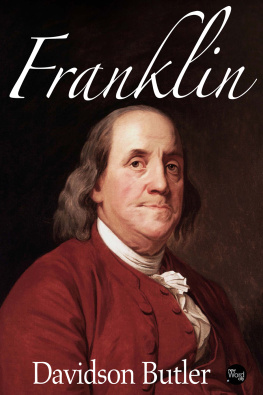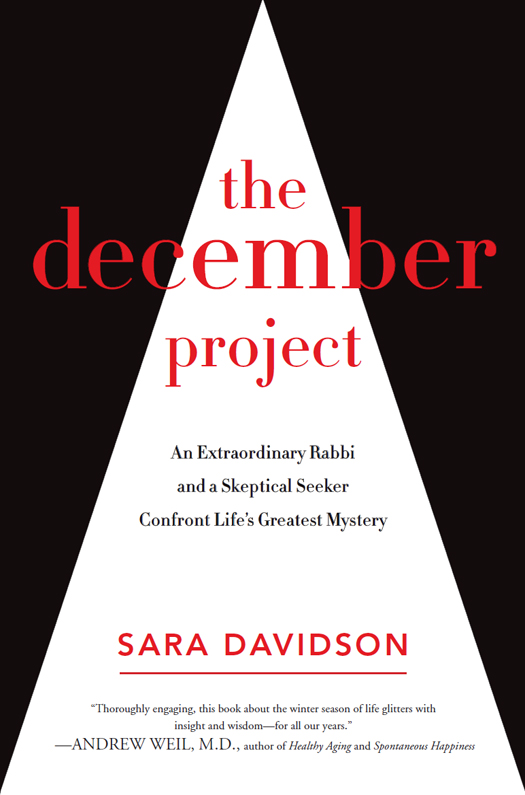For my sister, Terry
Contents
T his is the story of a rabbi, a skeptical seeker, and the conversations we had about what we came to call the December Project. It began in 2009, when I was surprised by a call from Rabbi Zalman Schachter-Shalomi, the iconic storyteller, philosopher, and founder of the Jewish Renewal movement. Wed met many years before, and he knew I was a seeker who owned a doubting mind. My heart wanted to travel any road that might lead to truth or transformation, and my mind would come along and point out cracks in the paving.
At eighty-five, Reb Zalman proposed that we have a series of talks about what its like when youre in the December of your years and you know youre coming to the end of your tour of duty. What is the spiritual work of this time, and how do you prepare for the mystery?
I jumped at the opportunity. I rarely found myself confronting the reality that one day I would cease to exist, and when I did, having no strong sense of an afterlife, I felt petrified. We began meeting every Friday and continued for two years, during which both of us were pushed up against the rock face. I went to Afghanistan and missed, by a few days, being killed by a suicide bomb. Reb Zalman struggled with a decline in health that was steeper than hed expected. He created strategies to deal with pain and memory loss, and found tools to cultivate simplicity and joy. The tools and strategies, I realized, could be valuable at any stage of life. They were lessons for all our years, and Ive included them as exercises you can try at the end of the book.
Throughout the story, Ive placed sketches from Reb Zalmans life that illumine how he acquired his unique voice and insights. He was present at major flash points of the last century. He fled the Nazis in Austria, became an Orthodox rabbi in Brooklyn, landed in San Francisco at the height of the sexual revolution, and took LSD with Timothy Leary. He laid the foundation for a new denomination, Jewish Renewal, which encourages people to have a direct experience of God, and has influenced other Jewish groups as well as other faiths. He translated ancient prayers into contemporary language and helped make the religion accessible to secular people. He formed friendships with Thomas Merton and the Dalai Lama, was made an honorary sheikh in the Sufi order, and ended his career holding the World Wisdom Chair at a Buddhist university. All those threads are woven into what he brings to the December years.
I knew at the outset that my talks with Reb Zalman would be nourishing and provocative. The rabbis omnivorous curiosity and jesting are infectious, and I hoped that exploring the movement of time through our lives would quicken my ability to relish every day. What I didnt anticipate was that our conversations would lead to a sea change in the way I face what we all must face, regardless of our beliefs or nonbelief: mortality.
M idway through my sixties, I woke up in the middle of a June night and saw a comet streaking across a black sky. Bolting up in bed, I watched the fiery orb shoot from left to right, tracing the last third of a rainbow-like arc. It was not a dreammy eyes were open and everything else in my bedroom appeared as it normally does. Except for the comet. Was it a hallucination, a projection, a fragment of a dream leaking into my waking mind? I couldnt tell, but as I watched it burn down and disappear, I knew: that comet is your life, babe, and its coming to the end of its trajectory. Are you spending your days the way you want to? A response rumbled up from deep within: NO.
In that seasonthe autumn of lifeI was spending the majority of my hours in front of the computer. Most nights, I would have to forcibly push myself up from the desk chair to go to sleep. In the morning, the first thing I did was walk, still wearing my nightgown, to the computer and check e-mail. I had too many balls in the air, too many items on a list that never grew shorter, too much busyness and too little being accomplished. I wanted to play music, have a more robust social life, mentor young people, spend more time in nature, and connect with a man who could be a full partner. I was, instead, having a long-distance relationship with someone who measured out our time together with coffee spoons.
I fell back asleep, consoled by the thought that the next morning was my regular Friday visit with Reb Zalman. Wed been meeting for a year, since hed asked me to discuss the stage of life he calls December, when you can feel your cells getting tired, and your hard drive is running slow. Ive been in your years, but you havent been in mine, and I want to help people not freak out about dying.
That was intriguingI certainly needed help in the almost impossible task of accepting in your bones that youre going to die. I understood that getting up close with mortality, as Reb Zalman puts it, enables you to have a more heightened and grateful life, but at the time he invited me to have these talks, I was not looking death square in the eye. I was more concerned with how best to live whatever years were still ahead... to the very last drop.
I would have seized any excuse, though, to spend time with Reb Zalman. Hes constantly deluged with requests for his blessings and counselfor a family issue, spiritual crisis, or solace with a fatal illness. His insights generally come from an unexpected angle, and more important, he says, the time I spend with people tastes good; it gives them endorphins. Theres a carry-away of love, and if thats not there it wont work.
What I find unique about Reb Zalman is that he bridges two worldsthe ancient Orthodox and the current cutting edge. Born in Poland and ordained a Hasidic rabbi in Brooklyn, he has long been a trailblazer for individuals from many faiths. Hes been a catalyst for the tectonic shift that began in the 1960s, moving away from what Zalman calls triumphalismthe belief that one religion is the best and only waytoward universalism, the recognition that, in Gandhis words, It is of no consequence by what name we call God in our homes.
Although hes tethered to the deepest roots of Judaism, Reb Zalman has not followed convention. Hes been married four times and has eleven children, including one for whom he was a sperm donor to a lesbian rabbi. His life mission has been to take the blinders off Judaism. Starting as a teen, he read psychology and philosophy books that were forbidden in his yeshiva, later communed with leaders of other faiths, and took mind-expanding drugs. He founded Jewish Renewal to help keep the tradition impassioned and alive, and hes ordained almost two hundred rabbis and cantors, who lead communities around the world. Every year when Newsweek compiles its list of the fifty most influential rabbis in America, Reb Zalman is on it.
Tall and striking in his younger years, Zalman is no less magnetic in his eighties. Each time I visit him, what I notice first are his eyes. Large and dark brown behind red tortoise-shell glasses, they meet you directly, saying, You! You are the one I want to speak with now. When he smiles, there are glints in his eyes that signal his amusement and eagerness to be surprised. Hes game to try new things, quick to adopt emerging technology, and reluctant to dismiss even the most outlandish idea. At seventy-nine, he tried hang gliding and started studying Arabic so his mind wouldnt get stale, which spurred others to say, Hes the model of how I want to be when Im older.
When we began meeting every Friday morning, it seemed accidental that wed come together for this project. I was between books, treading water, at the very time he was seeking someone who could help him articulate what he was experiencing in December. If I wrote about our talks, he felt, his learning would be uploaded and saved.

